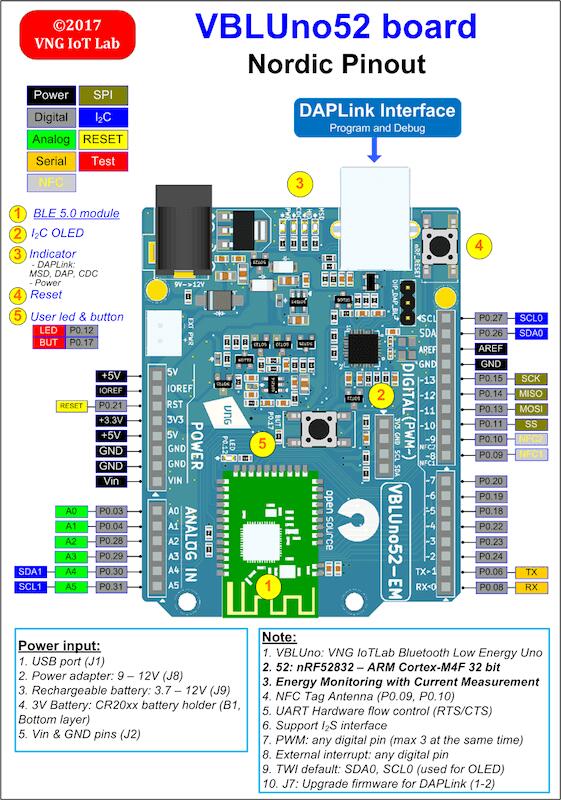nRF52-VBLUno52
Overview
Zephyr can use the nrf52_vbluno52 board configuration to run on the VBLUno52 board, a VNG Bluetooth Low Energy UNO using an nRF52832 ARM Cortex-M4F processor. It provides support for the Nordic Semiconductor nRF52832 ARM Cortex-M4F CPU and the following devices:
NVIC
RTC
UART
GPIO
FLASH
RADIO (Bluetooth Low Energy 5.0)

nRF52_VBLUno52 board
Hardware
The VBLUno52 board has two external oscillators. The frequency of the slow clock is 32.768 kHz. The frequency of the main clock is 64 MHz.
Supported Features
The nrf52_vbluno52 board configuration supports the following hardware features:
Interface |
Controller |
Driver/Component |
|---|---|---|
NVIC |
on-chip |
nested vectored interrupt controller |
RTC |
on-chip |
system clock |
UART |
on-chip |
serial port |
GPIO |
on-chip |
gpio |
FLASH |
on-chip |
flash |
RADIO |
on-chip |
Bluetooth |
I2C |
on-chip |
i2c |
SPI |
on-chip |
spi |
Other hardware features have not been enabled yet for this board.
Connections and IOs
LED
LED = LED0 (green) = P0.12
Programming and Debugging
Flashing
The VBLUno52 board has an on-board DAPLink (CMSIS-DAP) interface for flashing and debugging. You do not need any other programming device. You only need to install the pyOCD tool (https://pypi.python.org/pypi/pyOCD)
See the Getting Started Guide for general information on setting up your development environment.
You can build and flash applications in the usual way. Here is an example for the Hello World application.
# From the root of the zephyr repository
west build -b nrf52_vbluno52 samples/hello_world
west flash